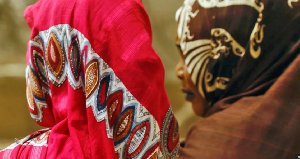Introduction
An advocacy group calling itself Northern Patriots in Research and Advocacy (NORPRA)has appealed to the UK government to compensate the citizens of the three northern regions “for deliberately denying the area of development in the colonial government’s policies”(GNA,01/02/07). According to the statement, NORPRA is urging the UK government to compensate the three Northern regions as part of Ghana’s 50th anniversary. As most accounts of the colonial period have noted, the Northern Territories (hereafter, N.T), in particular, were left in a state of benign neglect and lagged far behind southern Ghana in terms of every economic and social indicator.Today, fifty years on, is it feasible to expect compensation from the British government? Who should receive such compensation? How will it be administered? Is it right to blame the UK government for the current state of development in northern Ghana after almost five decades of nationhood? And finally what is the UK governments’ record in paying compensation to aggrieved people? These are just a few of the issues that need addressing.
The intention here is not to join in the barracking, but rather to examine the issues from an objective point of view. In fact, to appreciate the scale of deprivation in northern Ghana, we need to go on something of a historical detour.
British colonial Legacy in Northern Ghana
It is demonstrably true that British colonial adventure in northern Ghana did not bring any tangible developments to the area. The Anglo-French Convention of 1898 delineated the territorial boundaries of the N.T, while the N.T Order in Council of 1901 defined its legal status as formally independent protectorate. The British had brought the N.T under their control in order to prevent European rivals (French and Germans) from establishing themselves along trade routes from Kumasi to the north. The British intended from the beginning that the administration of the N.T should cost as little as possible. Revenue generated internally was to be used in the administration of the protectorate. Another costless policy was the use of forced labour in the construction and maintenance of roads. Even houses to accommodate commissioners were built by traditional chiefs among others.
As an imperialist policy this vast area was denied education and other infrastructural developments. The colonial government’s policy of “progressive traditionalism” practiced in the N.T was to “develop the native on lines which will not westernize him”. It was a policy designed to keep the northerner ignorant and backward. What passed as formal education was solely meant to serve the interest of “native administration”. The northerner in the eyes of the British colonial authorities was only fit for manual work and nothing else. And manual work they did. The N.T became perhaps, one of the largest labour reservoirs in peace time. The N.T supplied labour for the mines in Tarkwa and Obuasi. For example, in 1914, according to official estimates, a total of 3,800 migrants from the N.T were employed in the gold mines, a quarter of the entire mine work force (Lentz, 2006, p.143,). Again, labour to the cocoa-growing areas of southern Ghana was even more extensive than labour to the mines. The N.T also provided labour for the construction of rail lines and most importantly provided the bulk of the people that formed the colonial force (policemen and soldiers). From the above, it is clear that the N.T contributed greatly to the economic development of southern Ghana.
It is also important to examine briefly, British imperialism in other areas and whether there are any precedents of consoling or paying compensation for the sins of the British Empire.
The Case for Compensation or Apology
Britain has never apologized or compensated any nation or group of people for its imperial past in Africa and might never do so judging from comments made by some of the so-called African experts and chancellor Browns’ pronouncements in a trip to southern Africa in 2005. There is over whelming evidence that colonialism was exploitative, evil, racist and should not have happened at all. Colonial rule has left an indelible mark on the continent of Africa. In drawing up a balance sheet of colonialism, the bad far outweighed the good.
Northern Ghana had little to offer the colonialist. Such a zone was simply neglected by the colonising power with regard to roads, schools, hospitals, and so on. A glance at the railway map of Ghana suggests the enormity of the gap between a networked region in southern Ghana and none in northern Ghana. Where exports were not available, roads and railways had no place. Certain roads built in northern Ghana were to facilitate the recruitment of unskilled labour for the exploitation of resources in southern Ghana. Roads and railways were mostly directed towards evacuation of natural resources rather than regional integration.
Available records indicate that it is extremely difficult to exact compensation or an apology from the British government. A series of events are currently taking place in the UK and elsewhere to commemorate the Bicentenary of the British Parliamentary Abolition of the Transatlantic Slave Trade. 25th March 2007 marks the 200th anniversary of the day the British parliament made illegal the trade in Africans. There have been repeated calls form blacks in the UK and elsewhere for compensation and an apology from the British state. However, all such calls have fallen on deaf ears as the British government have so far refused to offer an apology or compensation. It is an undeniable fact that British industry and ports were intimately intertwined with slavery. Over three million of the about 14 million or so Africans who crossed the Atlantic before 1850 were shipped in British owned vessels. Britain’s rise to global pre-eminence was dependent on the slave trade. And despite the fact that the French President Jacques Chirac has declared May 10 a national holiday in honour of victims of slavery, Prime Minister Tony Blair has ignored repeated calls by both UK-based and international organizations for a national holiday in the UK.
Further, British authorities have thwarted all attempts at exacting compensations and apologies from the state. Only six years ago, at the UN Conference Against Racism in South Africa, Britain succeeded in convincing the other Europeans nations that traded in Africans(Netherlands, Spain and Portugal) to block the European Union from issuing a straightforward apology for the Transatlantic trade in slavery. Instead these nations expressed “regret” about the slave trade, without any specific recognition of responsibility. Britain has long argued that such an apology could have legal implications which could force them to pay reparations. In the November 27th 2006, edition of the New Nation, the British Prime Minister acknowledged for the first time the role Britain played in the slave trade and expressed “his personal sorrow”. Even with such a modest attempt, Mr. Blair was condemned on the right by those who still believe that Britain played a vital role in “civilizing savages”. In the UK there are several thousands of monuments honouring people of all manners. There are even monuments honouring animals of the Second World War (horses, donkeys and pigeons that carried supplies across enemy lines). Yet there is not a single monument in the UK honouring the memory of slavery or blacks’ contribution to Britain’s prosperity. Perhaps there will be one to commemorate the Bicentenary celebrations.
There are very few examples of the UK government offering apologies or compensation for the sins of the British Empire. In May 2002, the director of a London based think tank, Demos suggested that the Head of State, Queen Elizabeth II should embark on “a world tour to apologize for the past sins of the Empire as a first step to making the Commonwealth more effective and relevant”. Prior to this call, the Queen in November 1995 signed a New Zealand act of parliament offering the Maoris (the indigenes) an apology for the “wrongful and unjust” theft of their land by British settlers in the 1860s. The Queen again, on behalf of the British government “atoned” in 1997 for the 1919 Jallianwala Bagh massacre in Amritsar, India. The Queen did not verbally apologize for the massacre but laid flowers and observed a minute’s silence, before making a bow in homage to the dead. Further, Mr. Blair offered a partial apology for the Irish potato famine shortly after New Labour’s election victory in 1997. He expressed “regret” for the famine of 1845-49 which claimed more than one million lives.
It must be stated that in all the above cited cases, it took several decades of campaigning before the British government offered those partial apologies. No compensation was paid to any nation or groups of people. There are many groups on the African continent seeking compensation and apologies from the British government. For instance, there is currently a court against the British government concerning the Chagos Islands. The Chagos Archipelago Island of Diego-Garcia in the Indian Ocean is an example of the ugly face of British imperialism, about 3000 Chagossians were forced into exile by Britain and their ancestral lands leased to the US. Even though a High Court has twice given the islanders, the right to return and Britain had initially accepted the ruling when the islanders won their first case in 2000. The British government is trying to overturn a second ruling in the Court of Appeal. The island is home to over 2000 US military personnel. The Chagossians are demanding the right of return to the Island and compensations. Last year the British government allowed 102 Chagossians to visit the Island to tend graves, hold services and wander among derelict former plantations. Resettlement might never be possible because of the so-called “war on terror”. US bombers operating from Diego Garcia can strike deep into the Middle East and South Asia and naval vessels using its harbor can patrol the strategically vital waters of the Indian Ocean and the approaches to the Red Sea. Again victims of Kenya’s independence struggle are also seeking compensation. Veterans of the Mau Mau are “demanding an apology and an out of court financial settlement” from the British government.
Will the British government honour a promise they made 50 years ago? Absolutely no! Judging from the above cited examples; no African state has yet receive any apology or compensation for the robbery and brutality meted out to former colonies. Just imagine the number of countries that will be knocking at the doors of the British authorities for compensation. The British colonial authorities first entered the N.T in 1898, they had roughly five decades to address the development needs of this region, yet they did absolutely nothing. The promise of 30 million pounds sterling was a ploy to delay independence. At any rate when the British colonial authorities finally realized in the 1950s that they had robbed northerners, what prevented them from putting the promise ?30 million into an account for the development of northern Ghana? NORPRA should have realized from their research that colonialism did not come to develop African nations. Very few former British colonies have escaped poverty. In cases where there are overwhelming evidence and even court rulings, the British authorities have employed all known arguments to render such claims useless.NORPRA is right in appealing to the British government for compensation but such an appeal will yield nothing because the British are not known to be that charitable when the issue(s) at stake has to do with it imperial past. The focus of the impoverished nature of northern Ghana should be directed at central government, traditional authorities and northerners.
The Problems of Northern Ghana
The problems of northern Ghana are well documented. And since independence successive governments have tried to address the development needs of the North. Poverty is endemic in the three northern regions and according to statistics, nine out of every ten people are below the poverty line in the Upper East region, eight out of every ten people in the Upper West region and seven out of every ten people in the Northern region are below the poverty line. This partly explains why all the girls (“kayayor”, that is Hausa for porters) in the markets of Kumasi and Accra carrying the wares of bourgeoisies’ madams are from northern Ghana. Instead being in school poverty has forced these girls into doing menial jobs in the commercial centers of southern Ghana to make a living. Again, Northern Ghana accounts for 90 per cent of all Guinea worm cases in Ghana. This put Ghana second from the bottom after war torn Sudan according to the world’s rankings. The rate of school drop out is very high. The lists of problems are inexhaustible. But, haven’t northerners also contributed to the under-development of the north by our actions? The social contract that exists between citizens and central governments requires the latter to address the problems confronting the former. Citizens are also required to play an active role in the development of their communities. Perhaps, we northerners are not honouring our part of the contract with central government. All over the world politicians largely lead the development agenda of their respective countries and communities. In the case of Ghana the development agenda is led by politicians, traditional authorities, and now civil society groups. Despite the fact the British colonial authorities deliberately denied northerners education, at independence the north could boast of one university graduate. Today, there are several northerners occupying influential positions in Ghana.
The development of mass democracy sometimes creates political capital expressed through general elections. Big election victories for parties and MPs should be reciprocated by addressing the development needs of the people. Every four years, prospective MPs and sitting MPs who want re-election turn up with packets of roofing sheets, bicycles, bags of rice or maize, pieces of cloths, cutlasses among others to solicit for the votes of the people. What do we northerners get in return? Politics is about addressing the concerns of the ruled. The people’s representatives (MPs) are chosen to lead the people in finding solutions to their problems. How many northern MPs or politicians were present at last year December 14th demonstration against the under-development of northern Ghana in Bolga? Our northern politicians have failed the people of northern Ghana. It is about time our politicians articulate the problems of the north and lobby government and their colleagues for a greater share of the national cake. The development needs of the whole of Ghana are many, the citizens of Kumasi, Cape Coast, Ho, Sunyani, even Accra among others are all crying for governments’ attention for their development needs. We northerners must therefore make a convincing case that we need more developments to bridge the gap between the north and the south. And who is better placed to lead this crusade than our elected representatives. The consequences of a marginalized people are very grave. The under-development of northern Ghana should be the primary concern of our elected representatives, traditional authorities and all northerners.
Lack of security greatly undermines investments. From 1980 to 2000, northern Ghana has produced not less than 20 conflicts. The image of the north as a conflict prone area scares off potential investors. With the least provocation, those of our cousins in the Northern region are always ready to pull out their bows and arrows, machetes and even AK 47s to settle disputes. A very important personality like the King of Dagbon was murdered along with 40 of his elders. And if in the 21st century, a King who is the overlord of several people could die through such barbaric means, who is safe? There is the need for a paradigm shift and a new thinking as far as the development of northern Ghana is concern. We need to put our house(s) in order to convince our fellow countrymen of the need for more development in northern Ghana. The effective failure on the part of successive governments to define and set tangible development goals for northern Ghana is hampering the few development projects that get to this part of the country.
Conclusion
By raising such a fundamental issue, pushing them up the development agenda, forcing the debate, NORPRA must be commended. NORPRA should turn it attention first on northerners and then central government. The message of peaceful co-existence should be loud to all northerners. Once peace is prevailing in northern Ghana, government will have few excuses to give for not addressing the development needs of the people. Again the era where central government provided every thing is gradually dying out. Communities are now leading the development of respective areas. We in northern Ghana can do the same. Bridging the educational gap between the north and the south should be the collective responsibility of central government, traditional authorities and all northerners.NORPRA has noble ideas and therefore deserve the support of all northerners.















